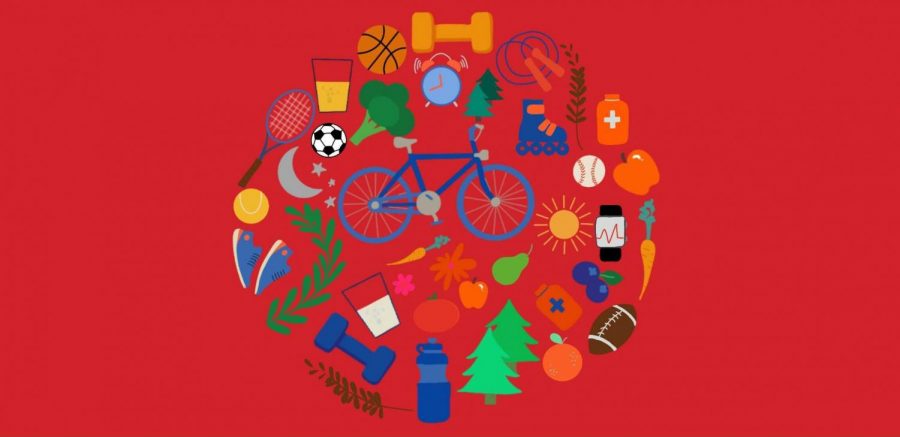WKU Counseling Center offers advice for finals week
December 5, 2021
Finals week is upon us, and it can seem daunting looking out on what work this week may bring. There are ways for students to handle the stress and pressure that this week may bring, however.
Karl Laves, Associate Director of the WKU Counseling Center and Licensed Counseling Psychologists, offered some tips on how to best handle this stress, including how to stay calm during finals week and study methods that may work best.
“Don’t feed the hype of finals. Finals week in reality isn’t as distressing as it is in our imaginations,” Laves said. “It is almost a rite of passage to talk about finals as horrible, like students are going to war. You might even hear students telling finals week stories to each other, trying to one up another with who had it worse. I’m not saying finals week is easy, I’m just saying that doing well begins with staying calm, avoid the hype, avoid the stereotypes.”
His first tip focused on the popular idea to pull all-nighters studying. Research shows that all-nighters can actually cause issues with how well you study, Laves explained.
“Forget the all-nighters. There is some research that has proven that mass or binge study sessions do not help you score higher unless you have not studied at all the whole semester,” Laves said. “In which case pulling an all-nighter might still not help you enough to pass the exam. Plus, pulling an all-nighter throws your brain out of whack, it messes up your sleep schedule, so the next few days you are not operating at 100%.”
Starting to study early and breaking up the information you need to know for your tests is a much more efficient way to truly learn the information compared to all-nighters, according to Laves.
“All-nighters are basically superstitious games played by students who haven’t learned how to learn,” Laves said. “You are much better off to start at least a week before finals and spend a good chunk of time each night going over your notes, readings, videos, et cetera. Doing some work every day is much better than doing all the work in one day.”
His second tip encouraged the understanding of what motivation really is. Everyone has motivation, and Laves explained how even if you don’t want to do something, you can still do it.
“Forget the myth of ‘motivation’. There is no such thing as having no motivation, people can be motivated to not do something, but all people have motivation, which is to say no one loses motivation in general,” Laves said. “And you don’t have to want to do something in order to do it. So don’t feed into the hype of finals being too hard or not having the motivation to study. Just be honest with yourself. You might not want to study, but you do want the degree and to own the degree you have to do the work.”
Laves explained the reasoning behind students that may face “test anxiety” and why this may be so prevalent during finals week. It is a combination of factors that makes anxiety happen during finals, so understanding these can help students recognize what may be causing their own feelings.
Do your best, do it with joy and love, do it with respect and passion and your grades will be good enough.
— Karl Laves
“Forget the myth of test anxiety; there is no such thing, really. There is just anxiety. People who get really anxious when testing tend to be people who are already pretty anxious anyway,” Laves said. “And it helps to know why you are anxious. Some people are insecure; they really don’t think they are smart and they are afraid they will fail, even though they have never ever failed. Some people are anxious because they didn’t pay attention, they didn’t study, and now they are probably going to fail and, yes, they will have to explain themselves to their parents.”
He also noted the importance of understanding that mistakes happen, but that shouldn’t make you give up or deter you from trying your hardest on finals.
“That is rough, but go ahead and own it. You can’t hide it, take your punishment and move on. We all have made mistakes here and there. No need to give up,” Laves said. “Some of us get anxious while testing because we get mad, like we are being treated like idiots which makes us mad but when we are mad, we don’t test well. The anger gets in the way of our memory and knowledge.”
He then moved to methods of preparing for finals week. Actual methods of studying will need to depend on what kind of testing and information you have to learn for your finals. Laves suggested that active learning in the form of discussions with other students is a good way to prepare for finals.
“You need to study and prepare the way you are going to be tested. Staring at flashcards or notes isn’t learning, it is reading. Learning is more complicated, there is more going on, more action,” Laves said. “When studying you need to have a conversation going in your head, better yet, a small group of people studying together, testing each other, arguing, debating. There is memory and then there is knowledge […] You need knowledge, and you need to know how to use what you have memorized.”
Finding the right environment to study and deciding when is vital as well. Laves explained how location and environmental aspects can make all the difference in retaining the information that you are studying.
“This is why it is a good idea to start early on finals, start going over the material early and keep going back. The more times you review it the more it becomes your own knowledge,” Laves said. “I know this will sound crabby and old, but yes you should find a place to study that has good lighting, minimal noise, but background noise is okay, and be sitting upright. Laying down is okay for a small amount of time, but lay down too long and your body just assumes it is time to doze off.”
Laves also recommended students not to over caffeinate, despite the common idea that caffeine can improve alertness and performance on tests.
“Speaking of dozing off, don’t over caffeinate. And forget the myth of study drugs, what a misleading and self serving name. Just like pulling an all-nighter, using stimulants for studying really doesn’t make a significant difference,” Laves said.
His last tip for improving stress during finals week was to relieve yourself of the idea that you have to be the best and go above and beyond what is expected. It is so important that students take this pressure off of themselves, relax and go into their tests believing they will do the best they can do.
“You can also take off some of the pressure to over achieve. Vanity comes in many forms; over achievement can be a form of vanity too,” Laves said. “So don’t torture yourself with some vision of making straight A’s. Some people find that to be important if they want to go to an elitist graduate school. But fortunately most of America understands that grades don’t tell the whole story. Do your best, do it with joy and love, do it with respect and passion and your grades will be good enough.”
News reporter Alexandria Anderson can be reached at [email protected].

























